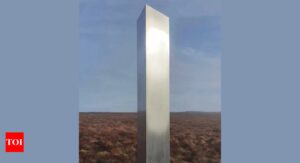Israel passes law to strip Supreme Court of power to block government decisions, defying months of protests

[ad_1]

CNN
—
The Israeli parliament on Monday passed a law stripping the Supreme Court of its power to block government decisions, the first part of a planned judicial overhaul that has sparked six months of street protests as well as fierce criticism from the White House.
The controversial bill passed by a vote of 64-0 in the Knesset. All members of the governing coalition voted in favor of the bill, while all opposition lawmakers walked out of the chamber as the vote was taking place.
Huge crowds of angry protesters gathered outside, attempting to block access to the building. They were met with barbed wire and water cannons and at least 19 were arrested before the vote, according to Israel Police.
The Movement for Quality Government, an Israeli NGO, filed a petition with the Supreme Court immediately after the vote took place, asking the court to declare the law illegal on the grounds that it changes the basic structure of Israeli democracy, and requesting that it block its implementation until the court has ruled on it.
Prime Minister Benjamin Netanyahu, who left hospital on Monday morning after having been fitted with a pacemaker, pushed the bill through despite Israel’s most important ally, the United States, issuing increasingly forceful warnings not to do so.
In a highly unusual step, the US President Joe Biden weighed in on the policy and warned that rushing the changes through without a broad consensus amounts to an erosion of democratic institutions and could undermine US-Israel relations.
“Given the range of threats and challenges confronting Israel right now, it doesn’t make sense for Israeli leaders to rush this – the focus should be on pulling people together and finding consensus,” Biden said in a statement provided to CNN.
Biden raised concerns directly with Netanyahu during a phone call last week and then called New York Times columnist Thomas Friedman to the Oval Office to make clear his stance on the judicial overhaul.
Other parts of the planned overhaul which are yet to be voted on by the Knesset would give Netanyahu’s coalition more control over the appointment of judges, and would remove independent legal advisers from government ministries.
Netanyahu and his allies call the measures “reforms” and say they are required to rebalance powers between the courts, lawmakers and the government. Opponents of the plan call it a “coup” and say it threatens to turn Israel into a dictatorship by removing the most significant checks on government actions.
Netanyahu was forced to pause the legislative process earlier this year, but resumed it earlier this month. He has argued that the Supreme Court has become an insular, elitist group that does not represent the Israeli people.
But critics say Netanyahu is pushing the overhaul forward in part to protect himself from his own corruption trial, where he faces charges of fraud, bribery and breach of trust. He denies any wrongdoing.
Another bill, already voted through in March, makes it more difficult for a sitting prime minister to be declared unfit for office, restricting the reasons to physical or mental incapacity and requiring either the prime minister themselves, or two-thirds of the cabinet, to vote for such a declaration.
Despite his victory on Monday, Netanyahu is likely to face more pressure over the reforms.
The mass protests that have engulfed Israel since the reforms were first announced in January and are unlikely to stop now and the Israel Bar Association is already preparing a legal challenge to the bill, the lawyers’ group said Sunday. The Bar is also warning it will shut down “as an act of protest against the anti-democratic legislative process,” the statement said. That means the Bar Association would not provide professional services to its members, not that lawyers would go on strike.
Israel’s umbrella labor union, the Histadrut, warned moments after the government passed the reasonableness bill that if the government continued to legislate unilaterally, there would be serious consequences.
The law still needs to be rubber stamped by Israel’s President Isaac Herzog, a formality under Israel’s political system.
[ad_2]
Source link







